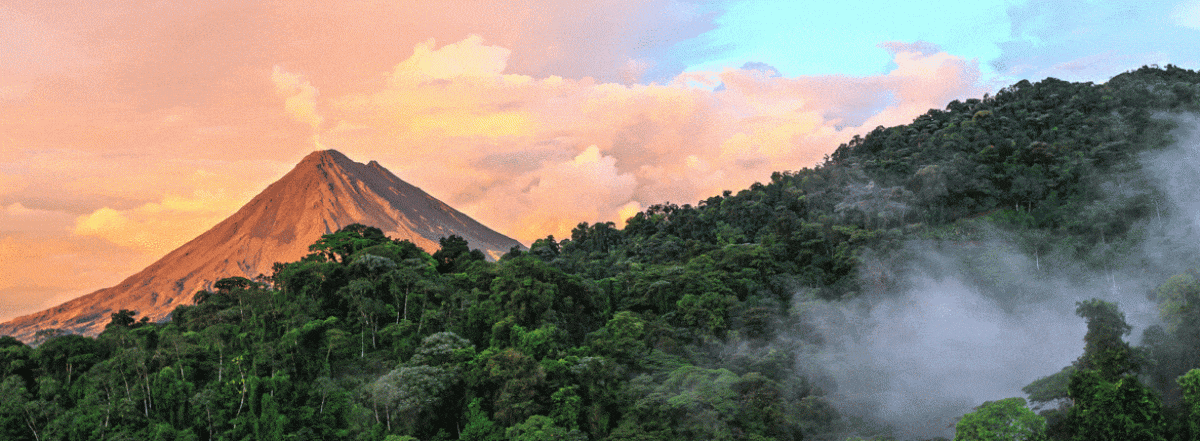Day two of our trip to Costa Rica started very early with breakfast at 6am. Due to Costa Rica’s new President assuming duties today, we needed to leave early to visit Volcan Irazu in order to avoid road closures. Our first stop of the day was Volcan Irazu which is a volcano about an hour and a half away from San Jose. Volcan Irazu ranges from 2800-3432 meters (9186-11260 feet). On the volcano, there were two separate craters, one dormant crater, and one active crater. The last time that the active crater erupted was in 1962. In my time in the Army, I have visited and lived close to multiple mountain ranges, but this was the first time I was able to see a volcano in person. The view from the volcano looking down over the city was beautiful, and the clear blue water inside the crater was the most beautiful water I have ever seen.
After we visited Volcan Irazu, we traveled about 45 minutes away to a coffee farm that is owned by two Americans that were from Connecticut. Since I have three daughters and am a full time student, I have a mild obsession with coffee, and was very excited to see how coffee is made. Our guide started our tour by showing us how coffee beans are roasted, and the chemical process that coffee beans go through from growth, to milling, and finally to roasting. She said that they are among very few coffee farms that grow, mill, and roast their beans on sight. After the tour was complete, we were able to taste the coffee that is made on sight, and purchase some.
Following the coffee tour, we made our way back into the city and stopped for lunch, and headed back to our hotel to change for a presentation on Costa Rica’s Social Healthcare Plan. Before making this trip, I was able to do a little bit of research on Costa Rica’s healthcare and found it to be very interesting. One of the things that I noticed about their healthcare is that everyone is covered. During our presentation, Dr. Jose Pablo discussed how Costa Rica is able to cover anyone in their country with healthcare, even if they are illegal immigrants. Hospitals in Costa Rica will not turn you away if you are sick or injured as it goes against their constitution of human rights. While this is slightly similar to the some hospitals in The United States, private clinics and free standing emergency rooms in the United States of America can turn you away if you do not have health insurance.
Tomorrow we will be leaving San Jose and Traveling to Las Juntas to visit Calderon Guardia Hospital. I am excited to visit the hospital as it is a smaller hospital than the one we visited in San Jose, as well as view a part of the country that has a lower socioeconomic status.

Your post touches on two of my favorite things: roasting coffee and healthcare finance. Yes, a strange combination! I took up coffee roasting as a hobby while in grad school and doing a pre-doc in health economics. In any event, I wish I had taken more time early in my career to visit other countries to learn how their healthcare systems are operated. My question for you is whether the coverage provided by the Costa Rican government pays for all medical care or only a set of basic services. If it pays for all healthcare, how does the government keep its costs in check, and if it instead only covers a set of basic services, who decides what’s covered? — Dave Vanness (@djvanness on Twitter)